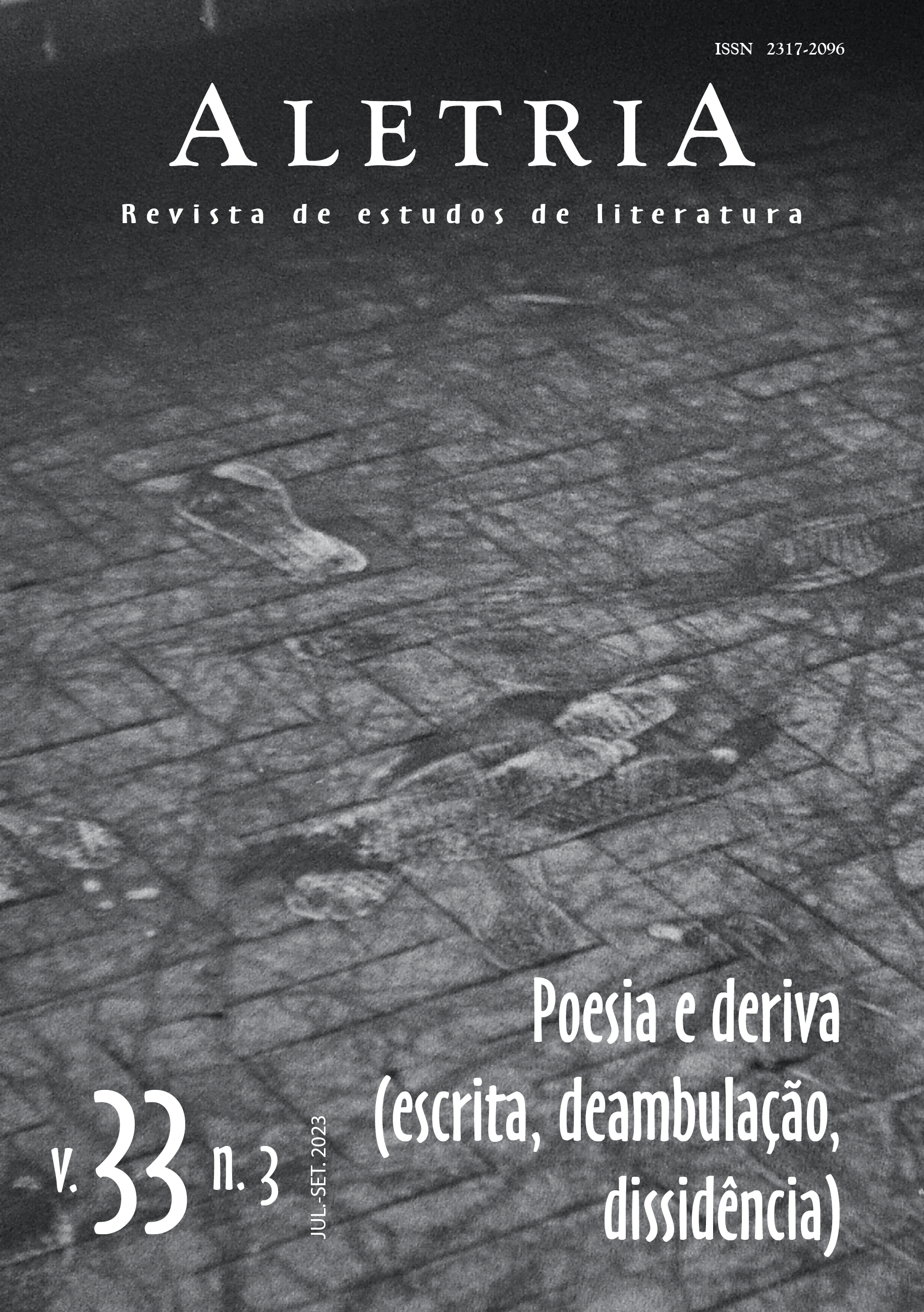Uma poética da permanência em Chinês com sono, de Leonardo Fróes
DOI:
https://doi.org/10.35699/2317-2096.2023.41824Palabras clave:
Leonardo Fróes, permanência, tempo, poesiaResumen
Resumo: O presente ensaio assume uma chave de leitura do livro Chinês com sono, de Leonardo Fróes (2005), que aponta para uma poética da permanência. Esta interessa aos estudos que vimos fazendo acerca da desaceleração vivenciada junto à literatura. Críticos como Jonathan Crary (2016) e Rodrigo Turin (2019) apontam para a aceleração e monetização da vivência do tempo no mundo moderno capitalista. Já o filósofo Franco Berardi (2020) e a crítica Rebecca Solnit (2002) apontam eventuais formas de resistir à imposição constante dessa dinâmica acelerada. A autora norte-americana nos fala que o gesto de caminhar pode ser um ato político poético, o italiano, por sua vez, fala sobre a insurreição da linguagem por meio da poesia. Por fim, Ailton Krenak (2022), com sua problematização acerca do tempo e da ancestralidade, ajuda a lapidar nossa leitura crítica. A partir desse breve pano de fundo crítico, lemos o livro mencionado de Fróes como uma insurgência (e urgência) que nos coloca em outra dimensão temporal, vivida, esta, numa poesia que aproxima o campo simbólico e a natureza.
Descargas
Referencias
ANDRADE, Carlos Drummond de. Nova reunião: 23 livros de poesia. São Paulo: Companhia das Letras, 2015.
BERARDI, Franco. Asfixia: capitalismo financeiro e a insurreição da linguagem. Trad. Humberto do Amaral. São Paulo: Ubu Editora, 2020.
CANCLINI, Néstor García. Culturas híbridas: estratégias para entrar e sair da modernidade. Trad. Heloísa Pezza Cintrão e Ana Regina Lessa. 8 ed. São Paulo: Edusp, 2019.
CRARY, Jonathan. 24/7: Capitalismo tardio e os fins do sono. São Paulo: Ubu Editora, 2016.
FRÓES, Leonardo. Chinês com sono. Rio de Janeiro: Rocco, 2005.
FRÓES, Leonardo. Natureza: a arte de plantar. Organização Victor da Rosa. Recife: CEPE, 2021a.
FRÓES, Leonardo. Poesia reunida (1968-2021). São Paulo: Editora 34, 2021b.
KRENAK, Ailton. Futuro ancestral. São Paulo: Companhia das Letras, 2022. Ebook
NETO, João Cabral de Melo. Obra completa. Rio de Janeiro: Nova Aguilar, 1994.
PEREIRA, Edimilson de Almeida. Entre orfe(x)u e exunouveau: análise de uma estética de base afrodiaspórica na literatura brasileira. São Paulo: Fósforo Editora, 2022.
SOLNIT, Rebecca. L’art de marcher. Arles: Babel, 2002.
SONTAG, Susan. Contra a interpretação: e outros ensaios. Trad. Denise Bottmann. São Paulo: Companhia das Letras, 2020.
TURIN, Rodrigo. Tempos precários: aceleração, historicidade e semântica neoliberal. Rio de Janeiro e Copenhague: Zazie Edições, 2019. E-book: Disponível em: https://zazie.com.br/wp-content/uploads/2021/05/TURIN2.pdf. Acesso em: 16 nov. 2022.
Descargas
Publicado
Número
Sección
Licencia
Derechos de autor 2023 Cristiano de Sales (Autor)

Esta obra está bajo una licencia internacional Creative Commons Atribución 4.0.
Authors who publish with this journal agree to the following terms:Authors retain copyright and grant the journal right of first publication with the work simultaneously licensed under a Creative Commons Attribution Non-Commercial No Derivatives License that allows others to share the work with an acknowledgement of the work's authorship and initial publication in this journal.Authors are able to enter into separate, additional contractual arrangements for the non-exclusive distribution of the journal's published version of the work (e.g., post it to an institutional repository or publish it in a book), with an acknowledgement of its initial publication in this journal.Authors are permitted and encouraged to post their work online (e.g., in institutional repositories or on their website) prior to and during the submission process, as it can lead to productive exchanges, as well as earlier and greater citation of published work (See The Effect of Open Access).









